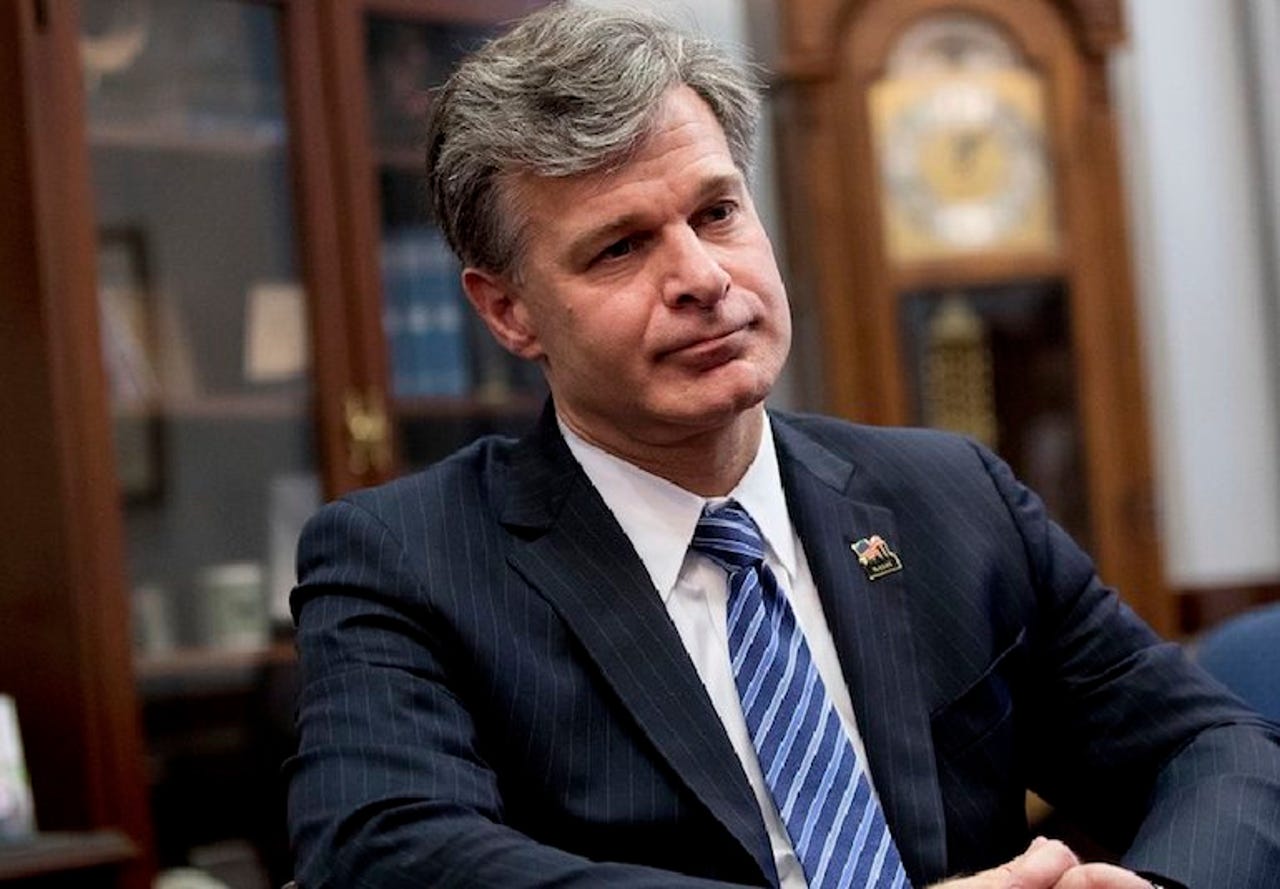Senator calls out FBI director's 'ill-informed' encryption backdoor views


(Image: file photo)
In July, Trump's nominee for FBI director, Christopher Wray, told senators in response to questioning at his confirmation hearing that he had an open mind about encryption, and had yet to form an opinion on backdoors.
Senators wanted to know these details, given only a year earlier the former FBI director James Comey went to war with Apple in an effort to force the company to build an iPhone backdoor.
Sen. Ron Wyden, who asked Wray about his views on encryption, didn't think an open mind was enough. He voted against confirming the candidate, because in offering no clear-cut position, Wray "failed to oppose government backdoors into Americans' personal devices, or to acknowledge the facts about encryption."
Wray got the job in the end, and was confirmed as FBI director.
But earlier this month at a cybersecurity conference in New York, Wray finally made up his mind on encryption.
"We face an enormous and increasing number of cases that rely on electronic evidence," said the FBI director in his prepared remarks. "We also face a situation where we're increasingly unable to access that evidence, despite lawful authority to do so."
He called that inability to access encrypted devices an "urgent public safety issue." Although Wray said in his speech that he was "not looking for a 'backdoor'," he nevertheless went on to describe what amounts to a backdoor.
Wyden, one of the senate's most staunch defenders of encryption, responded in a letter sent to Wray on Thursday. The letter, first reported by Gizmodo, didn't pull any punches, calling the FBI director's position an "ill-informed policy proposal," one that would "harm American security, liberty, and our economy." The Democratic senator added that the view "parrots the same debunked arguments espoused by your predecessors, all of whom ignored the widespread and vocal consensus of cryptographers."
"For years, these experts have repeatedly stated that what you are asking for is not, in fact, possible," said Wyden, in his letter.
For years, cryptographers and security experts have too, in fairness, largely parroted the same line -- that you can't build a secure backdoor for law enforcement that won't also open up an inadvertent avenue for hackers to access. Even this reporter is sick of talking about it. (Editor's note: But he will still talk your ear off about it if you'll listen.)
More than a dozen of the world's most respected cryptographers wrote a letter in 2015, concluding that "there is no viable technical solution that would allow the American and British governments to gain 'exceptional access' to encrypted communications without putting the world's most confidential data and critical infrastructure in danger."
Wyden, knowing this, wants Wray to explain how he arrived at his controversial but unsurprising position.
The senator wants Wray to provide "a list of the cryptographers with whom you've personally discussed this topic," and to "specifically identify those experts who advised you that companies can feasibly design government access features into their products without weakening cybersecurity."
When reached, an FBI spokesperson would not immediately offer that list of names, but told ZDNet: "Our practice is to provide any response to congressional letters directly to the member or members of Congress who contact us."
Wray has until February 23 to come up with something.